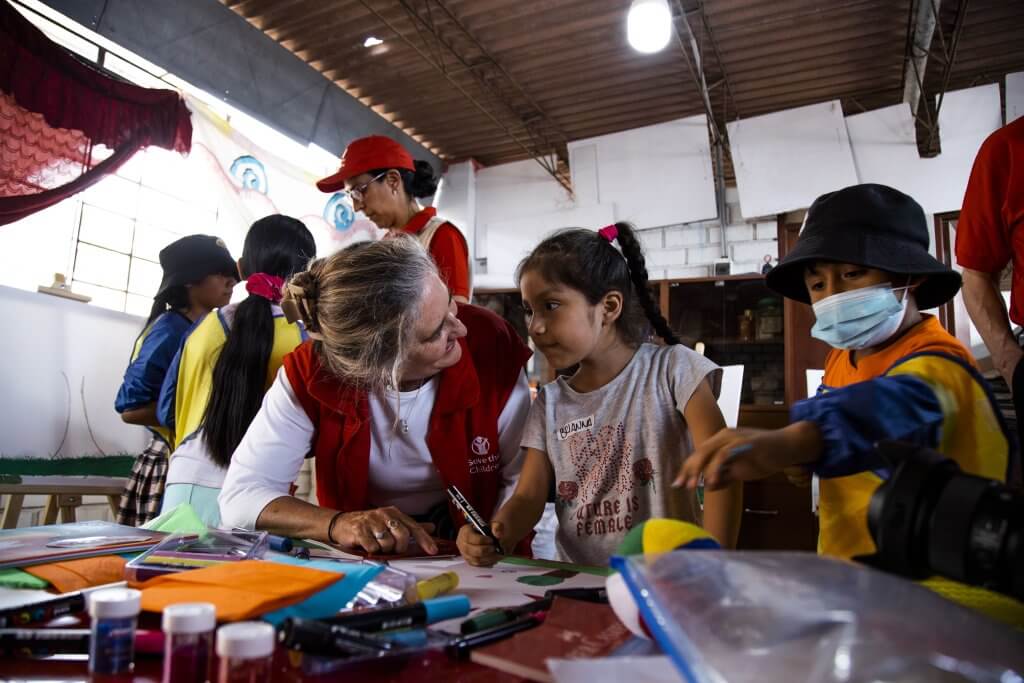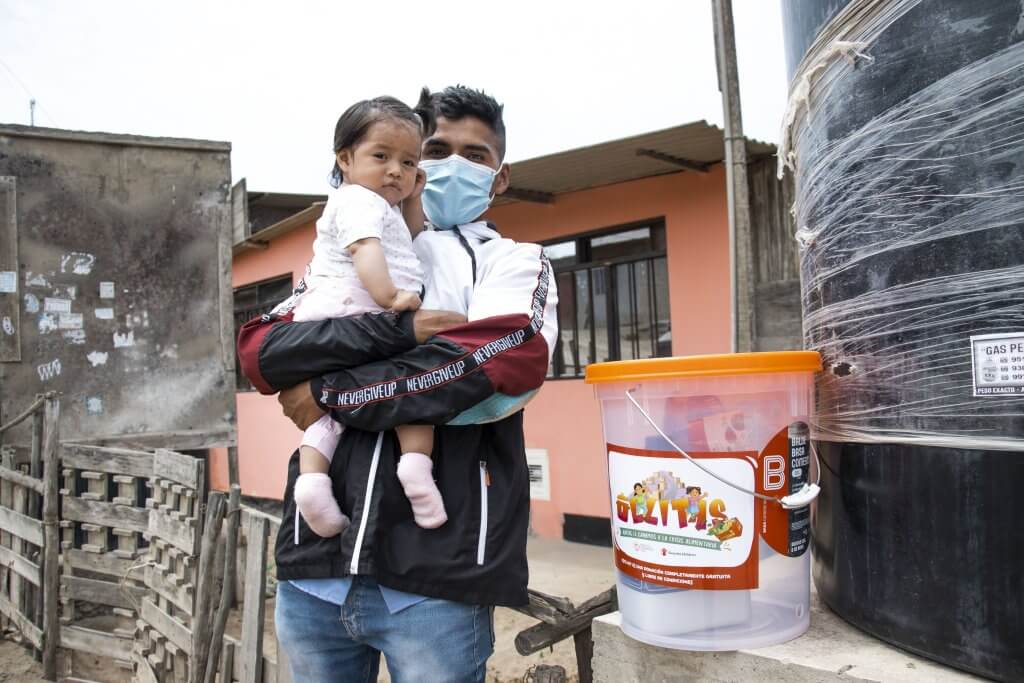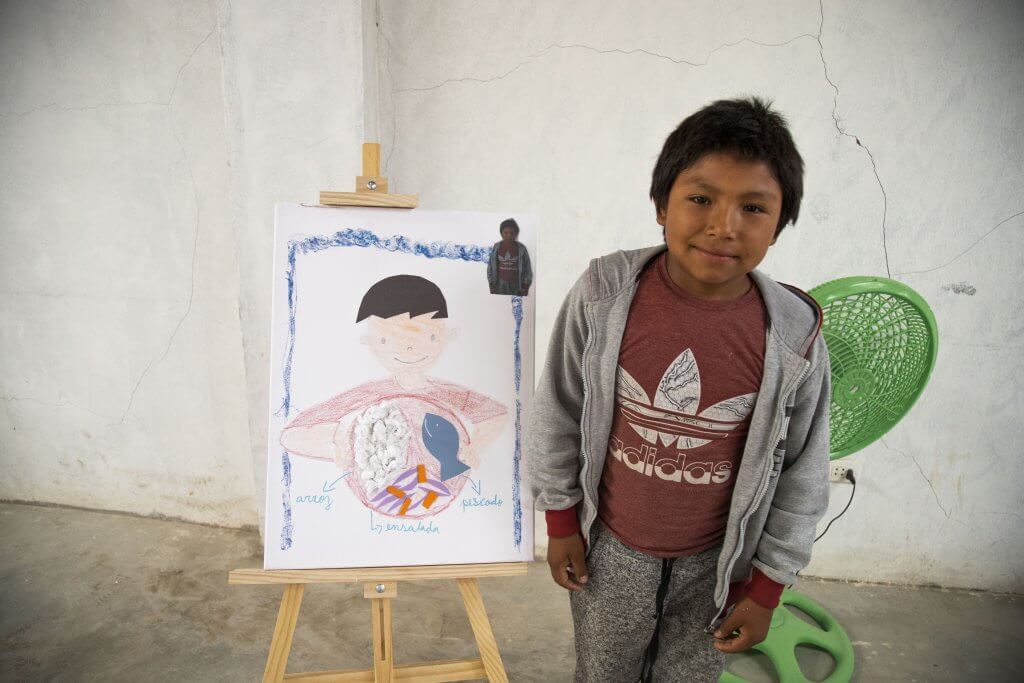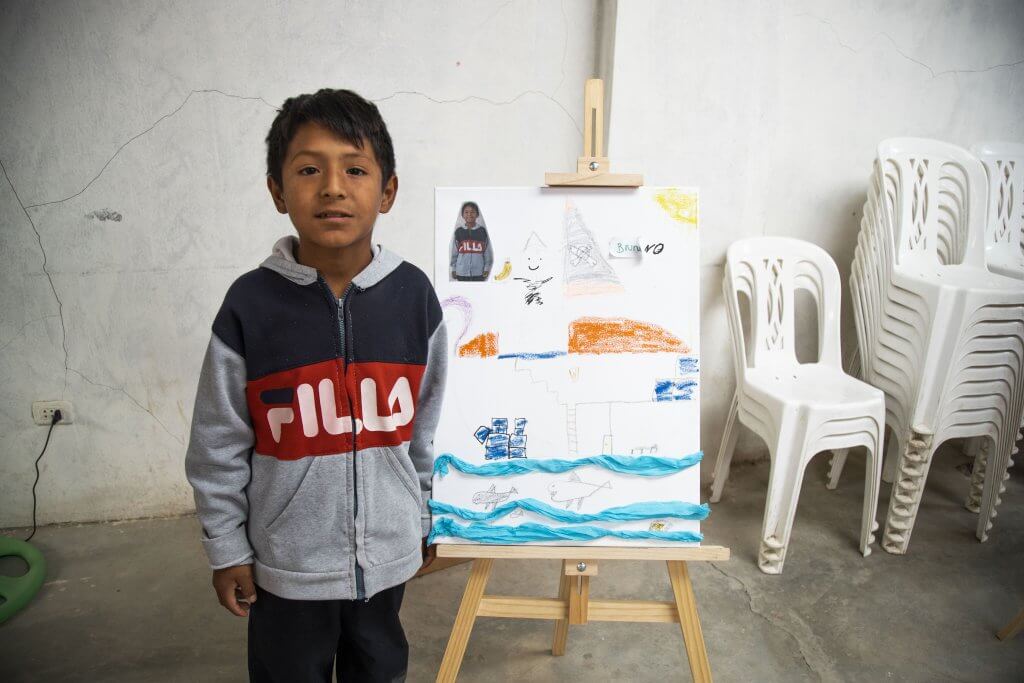117 communal pots benefit from a safe and balanced diet thanks to the work of Banco de Alimentos Perú and Save the Children
- Banco de Alimentos Perú and Save the Children collaborate with 117 communal pots in 7 districts, providing food and training 263 people in nutrition, safe food handling, safe water, protection, participation and personal finance.
- After the intervention, 9,099 vulnerable people reduced the gaps in food insecurity, accessing healthy and nutritious food.
According to the Report on the State of Food Security and Nutrition in the World -SOFI 2022-, more than half of the population in Peru is in a situation of food insecurity. This information confirms the data from the Food and Agriculture Organization of the United Nations -FAO, which indicates that by July 2022, almost 80% of Peruvians reduced the amount of food in their daily diet, skipped a meal or skipped hungry for a day or more. In this context, according to the Peruvian Ombudsman’s Office, the Common Pots are essential to face hunger in the country.
In response to this need, Save the Children and the Food Bank of Peru implemented the project “Ollitas, together we beat the food crisis” to support 117 communal pots from Ate, Pachacamac, San Juan de Lurigancho, San Juan de Miraflores, Ventanilla, Puente Piedra and Santa Rosa, ensuring that 9,099 vulnerable people have access to healthy and nutritious food, added to the strengthening of community leadership and protection against violence.
“Sometimes when we did not have money we fasted. From time to time we bought fruit, because fruit is expensive”
Valentina* girl from San Juan de Lurigancho who attends a communal pot
As part of this intervention, 40 training sessions were carried out on the nutritional value of food, balanced diets, savings management, soft skills, and the promotion of recommended practices for Maternal, Infant, and Young Child Nutrition in Emergencies (MIYCN-E). Thus, it was possible for 75% of the Common Pots to provide healthy and balanced lunches to their members.
“I feel happy, now that my daughters eat here, I don’t pay a single sol. I already prepare breakfast for my daughters, there is already more support here”.
Yonilda, cook of a communal pot

To complement the intervention, kitchenware and semi-industrial pots for the safe preparation of food were delivered to the most vulnerable communal pots. Water storage tanks and safe water kits were also delivered to families, to implement new safety practices in food management and hygiene in the population, achieving that 76% of the Community Pots participating in the project implement practices of healthiness.
“We don’t have more information on how to keep the water clean. Children when there is no good hygiene will be affected in their diet. As there is no hygiene, they take their food with a dirty hand and there may be diarrhea. These kits will help us a lot to improve our health. We will be able to purify our water for our consumption and wash fruits and vegetables”
Neighbor of the district of Santa Rosa

It is important to highlight that 75.6 tons of food were rescued and distributed, mainly fruits and vegetables, and that more than 200 pot leaders were trained in this process, which will be able to replicate the information in their pots. In this sense, Daniela Osores, general manager of the BAP, states “Today more than ever, the work of the Common Pots is key to addressing food insecurity. The dedication of the women who lead this type of food emergency initiatives is admirable, since even they are in a situation of poverty, from the BAP, we will continue contributing to the feeding of more than 300,000 Peruvians in this unfortunate situation”.



At the end of the intervention in February, two comprehensive health campaigns were carried out in which anemia was ruled out in girls and boys, “since one of the ambitions of Save the Children in Peru by 2030 is that no child or a girl under 5 years of age dies from a preventable cause”, indicated Roxana Pingo Manager of the offices of the South Central Macroregion.

After the intervention, the users of the 117 pots showed satisfaction and appreciation for the actions provided in the project.
“Now that I have learned about the pot, I already eat fruit almost every day. If it weren’t for those foods I wouldn’t be attentive. Those foods that I eat are good for me. I would like the rest of the children to go to the pot, there are some children who do not have anything to eat because food is expensive”
*Valentina
.png)




